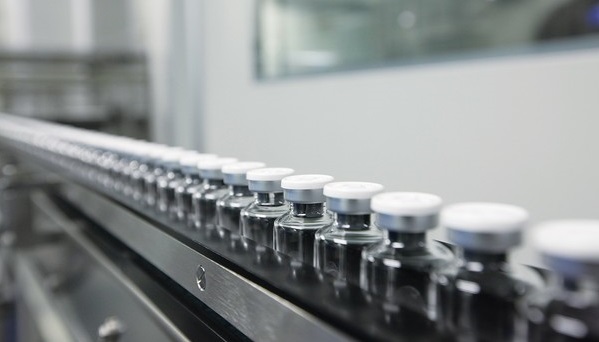Celltrion said Regkirona (ingredient: regdanvimab), an investigational antibody treatment candidate against Covid-19, reduced treatment and recovery time of Covid-19 patients in a recent trial.
Professor Eom Joong-sik of the Infectious Disease Division at Gil Medical Center of Gachon University presented the results of the phase-2 study on Regkirona at the 2021 High1 New Drug Development Symposium on Wednesday.
“I expect that Regkirona could open a new chapter in the treatment of high-risk patients because it can prevent the progression to severe Covid-19 and cut treatment time,” Eom said. “The treatment can significantly help manage medical resources because it can reduce the treatment burden on medical institutions.”
Celltrion completed the global phase-2 study on 307 patients with mild and moderate Covid-19 out of the 327 patients it recruited. Among them, 124 (40.4 percent) had mild Covid-19 infection, and 182 (59.3 percent), severe Covid-19 accompanying pneumonia.

The study included many patients aged 50 or more and high-risk patients with pneumonia who were likely to progress to severe Covid-19. The research team administered Regkirona in the early stages of infection and evaluated how the injection could prevent the disease's worsening.
Researchers divided the patients into three groups – Regkirona 40mg/kg treatment group, 80mg/kg treatment group, and the control group with placebo – and checked the results on day 28.
According to Eom, only 4 percent of the 40mg-treated patients had their disease progress to severe Covid-19, compared to 8.7 percent in the placebo group. This means that the 40mg-treated group had a 54 percent reduction in progression rates to severe Covid-19.
Among patients with moderate Covid-19 with pneumonia, 6.5 percent had a disease progression to severe Covid-19, compared to 15.8 percent in the placebo group. In this group, Regkirona cut progression rates to sever Covid-19 by 59 percent. In patients aged 50 or more with moderate Covid-19, the treatment candidate lowered the disease progression risk by up to 68 percent, as 7.5 percent of the treatment group progressed to severe Covid-19, versus 23.7 percent in the placebo group.
Eom expected that Celltrion’s treatment candidate could cut Covid-19 progression rates to severe Covid-19 by over half.
“Most Korean Covid-19 patients with mild symptoms enter community treatment centers (CTC). The treatment candidate could reduce the progression to severe Covid-19 for them,” Eom said. “The treatment could also shorten hospital stay time for those hospitalized due to progression to mild Covid-19.”
As the nation found it difficult to secure hospital beds for severe Covid-19 patients, Celltrion’s antibody treatment could relieve such burdens, he noted. “It will also help medical institutions to manage resources like space and manpower very effectively,” he added.
In the study, the Regkirona-treated group had a shorter recovery time, compared to the placebo group, according to Eom. In the 40mg group, the median recovery time was 5.4 days, 3.4 days shorter than 8.8 days of the placebo group.
In moderate Covid-19 patients with pneumonia, the recovery time was 5.7 days, 5.1 days shorter than 10.8 days in the placebo group. Moderate Covid-19 patients aged 50 or more had 6.6 days of recovery time, versus 13 days of the placebo group.
“The treatment candidate almost halved the recovery time. It seems that the drug is more effective in people aged 50 or more, and it could reduce treatment time by about a week,” Eom said.
When treating patients with moderate or severe Covid-19, hospitals recommend a 10-day hospitalization after the patient shows clinical improvement. Regkirona could shorten the recommended hospitalization by nearly a week, and this can help hospitals operate beds and medical resources more efficiently, Eom added.
The treatment group also had a much faster reduction in viral load. On day 7, the viral load in the Regkirona-treated patients went down by about 1,500 times, a value required for at least three or four days in the control group, according to Eom.
Regarding safety, Regkirona’s adverse reactions were either insignificant or without a symptom, and the drug did not report any serious adverse reaction, death, or trial discontinuation case, he said.
Celltrion’s treatment candidate is as effective as other antibody treatments by Lilly and Regeneron, Eom said.
“When compared to the two existing antibody treatments, Regkirona proved its therapeutic effect although early pneumonia in clinical participants was an important risk factor,” he said.
As the study was in phase-2, Celltrion needs to conduct a phase-3 trial on more patients, he noted. However, with the latest results alone, Regkirona could play a crucial role in clinical settings, he added.

